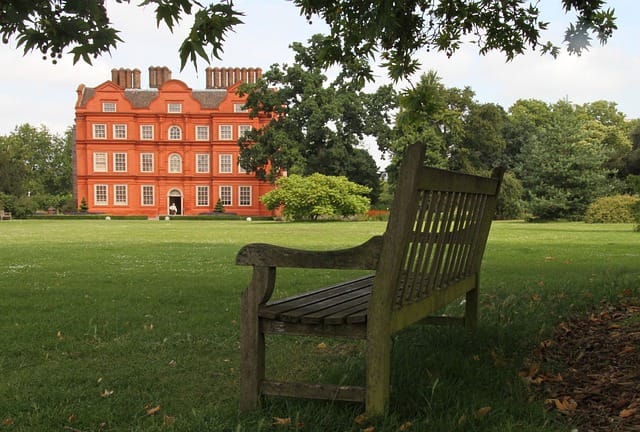Greatest gardens: Kew Gardens, London, UK
Kew Gardens, also known as the Royal Botanic Gardens, is a UNESCO World Heritage Site located in West London

In this article:
- Introduction to Kew Gardens
- Historical Background
- Botanical Importance
- Iconic Landmarks within Kew Gardens
- The Palm House: A Tropical Paradise
- The Princess of Wales Conservatory
- The Temperate House: A Living Museum
- The Waterlily House: Beauty in Aquatic Form
- The Great Pagoda: A Step into Chinese Culture
- The Arboretum: A Haven of Trees
- The Rose Garden: Fragrance and Romance
- The Rhododendron Dell: Burst of Colors
- The Alpine House: Exploring Mountainous Flora
- The Evolution House: Discovering the Story of Evolution
- Kew Palace: A Glimpse into Royal History
- Attractions for Kids: Kew Gardens for Families
- Conservation Efforts at Kew: Protecting Plant Biodiversity
- Notable Events and Exhibitions
- The Kew Gardens Shop and Dining Options
- Conclusion: Experience the Evergreen Majesty of Kew Gardens
Introduction to Kew Gardens
Kew Gardens, also known as the Royal Botanic Gardens, is a UNESCO World Heritage Site located in West London. It spans over 300 acres and is home to one of the most diverse collections of plants in the world.
Historical Background
Kew Gardens has a rich history dating back to the 18th century when it was established as a royal garden. Over the years, it has played a significant role in botanical research and the advancement of plant science.
Botanical Importance
Kew Gardens is renowned for its dedication to plant conservation, research, and education. It houses a vast collection of rare and endangered plants, making it a vital resource for botany enthusiasts and scientists.
Iconic Landmarks within Kew Gardens
Kew Gardens is home to several iconic landmarks that showcase its beauty and cultural significance. These landmarks include the Palm House, the Princess of Wales Conservatory, the Temperate House, the Waterlily House, the Great Pagoda, and more.
The Palm House: A Tropical Paradise
The Palm House is a Victorian glasshouse that houses exotic tropical plants from around the world. Its impressive architectural design and lush greenery create a mesmerizing tropical experience for visitors.
The Princess of Wales Conservatory
The Princess of Wales Conservatory features ten different climate zones, each displaying a unique collection of plants. From cacti to orchids, visitors can explore a diverse range of plant species from various habitats.
The Temperate House: A Living Museum
The Temperate House is the largest surviving Victorian glasshouse in the world. It showcases a wide array of temperate climate plants and provides visitors with the opportunity to learn about plant evolution and adaptation.
The Waterlily House: Beauty in Aquatic Form
The Waterlily House is a tranquil space dedicated to showcasing beautiful aquatic plants, including various species of water lilies. This serene environment provides visitors with a unique experience of natural beauty.
The Great Pagoda: A Step into Chinese Culture
The Great Pagoda is an iconic octagonal tower influenced by Chinese architecture. Visitors can climb to the top and enjoy panoramic views of Kew Gardens while immersing themselves in Chinese culture and history.
The Arboretum: A Haven of Trees
The Arboretum is a vast area within Kew Gardens that allows visitors to explore a diverse collection of trees from all over the world. It is the perfect place to take a leisurely stroll and appreciate the beauty of nature.
The Rose Garden: Fragrance and Romance
The Rose Garden at Kew is a delightful spot for all rose enthusiasts. With over 1700 species of roses, it offers a fragrant and romantic setting for visitors to enjoy.
The Rhododendron Dell: Burst of Colors
The Rhododendron Dell is a vibrant display of colorful rhododendron plants. When in full bloom, the dell creates a breathtaking spectacle, showcasing nature's artistic beauty.
The Alpine House: Exploring Mountainous Flora
The Alpine House showcases plants that thrive in high-altitude environments. With its rocky terrain and diverse plant species, it replicates the unique conditions found in mountainous regions.
The Evolution House: Discovering the Story of Evolution
The Evolution House is an interactive exhibit that takes visitors on a journey through the history of plant evolution. Through engaging displays and informative exhibits, visitors can learn about the fascinating story of plant adaptation.
Kew Palace: A Glimpse into Royal History
Kew Palace, located within the Gardens, is a historic royal residence. Visitors can explore its opulent interiors and learn about its significance in British history.
Attractions for Kids: Kew Gardens for Families
Kew Gardens offers numerous attractions for children, including a treetop walkway, a play area, and interactive exhibits. It provides a fun and educational experience for the whole family.
Conservation Efforts at Kew: Protecting Plant Biodiversity
Kew Gardens is actively involved in conserving plant species and protecting their biodiversity. Through research, education, and partnerships, it contributes to the global effort of preserving our natural heritage.
Notable Events and Exhibitions
Kew Gardens hosts a variety of events and exhibitions throughout the year, including flower shows, art installations, and educational programs. These events enhance the visitor experience and showcase the beauty of nature.
The Kew Gardens Shop and Dining Options
The Kew Gardens Shop offers a range of botanical-themed gifts, books, and plants. Additionally, there are various dining options within the Gardens, including cafes and restaurants, where visitors can relax and enjoy a meal.
Conclusion: Experience the Evergreen Majesty of Kew Gardens
Kew Gardens is a must-visit destination for nature lovers, botany enthusiasts, and families alike. With its diverse plant collections, iconic landmarks, and dedication to conservation, it offers a unique and unforgettable experience in the heart of London.
